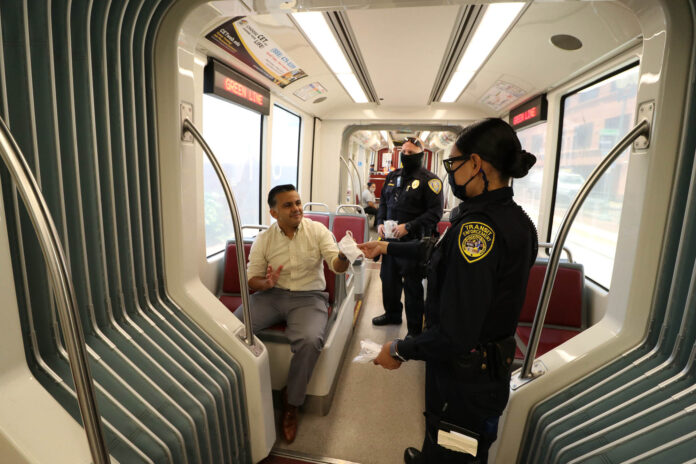
Carotid restraints and choke holds banned, de-escalation tactics required
By Voice & Viewpoint Newswire
The San Diego Metropolitan Transit System (MTS) is making changes to its security department’s use of force policy. MTS staff briefed the Board of Directors on the changes at its meeting on Thursday, July 30. The use of force changes come as one of several reforms the transit agency is making to its security department.
The agency used many of the principles in the “8 Can’t Wait” campaign and as a guideline for the policy changes. The updates keep the use of force policy in line with recent state laws to police reform. Officer training has already begun and testing on the new policy began this week. Updates include:
- Banning carotid restraints and choke holds, including the prohibition of using knee pressure on the neck, throat or head.
- Requiring use of force to be proportional to the seriousness of the subject’s offense.
- A duty to intervene if witnessing excessive force by another employee.
- Requiring de-escalation tactics when feasible (de-escalation training was previously provided, but now written into policy).
- Requiring a warning prior to use of force.
The policy changes will apply to 64 internal MTS Code Compliance Inspectors and 158 contracted security officers. In addition to the use of force policy changes, MTS will also begin a fare diversion pilot program Sept. 1 to help riders caught without a fare avoid court fees and criminal citation. The agency is also in the process of conducting a third-party audit of its security policies and procedures. MTS continues to operate about 95 bus routes and three Trolley lines. Frequencies and spans have been restored to near-pre-COVID-19 levels. Updated schedules can be accessed on the MTS website at sdmts.com.

